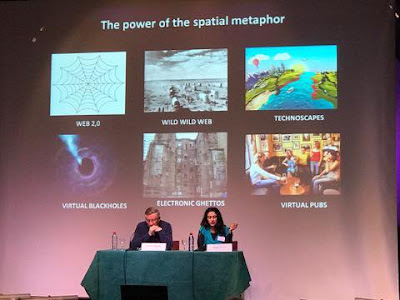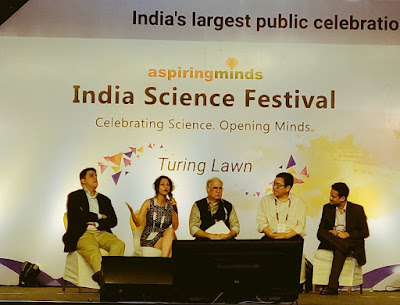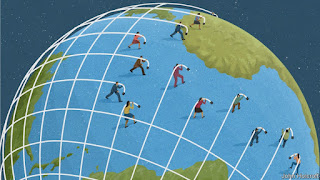Speaking on Digital Cultures at Collège des Bernardins in Paris
This international conference at the Collège des Bernardins was on the topic of "L’humain au défi du numérique". Basically, it focused on digital & cultural diversity. Following the work of Milad Doueihi, the Chair of the Collège des Bernardins on "The human being with the digital challenge", the study day "Numerique & Diversité culturelle" proposes to examine the digital experience in other regions of the world and the possibility of thinking differently, using different methodologies and categories of thought. Can we still study digital culture, or produce an audible discourse on it, without systematically discussing the issue of digitization, encoding, mapping, data and usage? The meeting of computer science with the human and social sciences seems to have tightened the perimeter of the latter. The suspicion that weighs since their origins on their scientificity and their social utility is thus based, at a time when public funding is always demanding more "results" applicable.
Faced with an institutional restructuring in progress, which imposes laboratories a hard model of scientificity, the colloquium "Numerique & Diversité culturelle" draws from diverse voices. What should a number of academic disciplines (anthropology, communication, etc.) and actors (artists, engineers), usually little understood, have to tell us about digital culture? How does the latter, for example, work our perception of ethnic groups? What relationships do we have with these "non-human" robots? What are the alternatives to western platforms, such as Google or Facebook, and what new culture do they create? Etc. The notion of "diversity" is thus to be understood in two ways: diversity of approaches to studying digital culture; Diversity of its "inhabitants", which deserve our attention.
To respond to this program, the colloquium "Numerique & Diversité culturelle" of the Collège des Bernardins brought together international actors whose work focuses on several issues (activism, robotics, standardization of Internet standards, etc.) and Other parts of the world, such as Asia, the Middle East or India.




Comments
Post a Comment